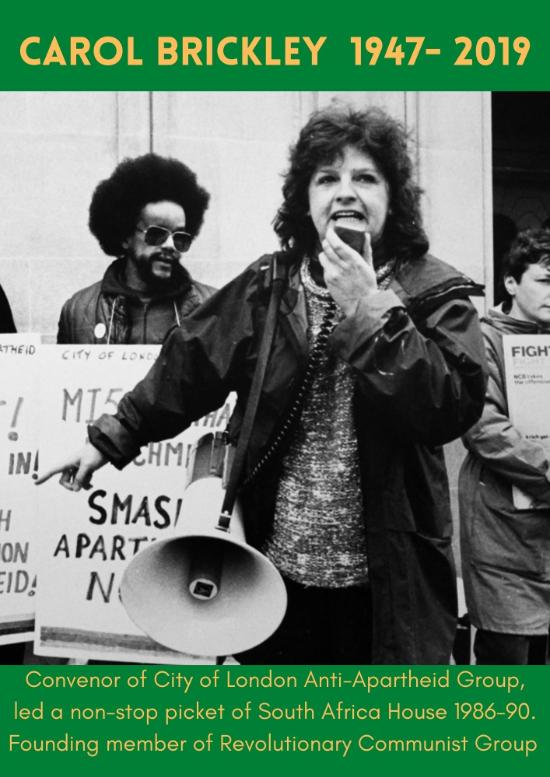Nawal El Saadawi 1931-2021
Nawal El Saadawi was a prolific author and activist for women’s liberation in Egypt and beyond. Whilst Western media focus on her work against female genital mutilation and her condemnation of the patriarchal social, cultural and religious practices and beliefs that perpetuate the oppression of women in Egypt and other Arab nations, they conveniently ignore that she identified ‘the patriarchy, capitalism, imperialism and poverty’ as the main oppressors of women in Egypt and elsewhere.
El Saadawi was born in 1931 whilst Egypt was occupied by British troops. She attended medical school, graduating in 1955, under the government of Gamal Nasser, leader of the Free Officers’ Movement that booted out British colonialism and nationalised the Suez Canal. Nasser raised living standards and expanded opportunities for women. In 1956, Britain, with French and Israeli support, attacked Egypt, intending to remove Nasser and seize back control over the Suez Canal. Though the invasion was humiliated by a US-orchestrated run on the pound, British and US interests acted to stunt Egyptian development. After Nasser’s death in 1970, Egypt aligned more closely with the US and Israel, facilitating the steady impoverishment of an already poor Egyptian working class. El Saadawi maintained that the relationship with the US impoverished Egypt and that US support for Israel was terrorism. During this time El Saadawi worked as a village doctor, where she saw the harrowing consequences of the absence of a public health infrastructure and sanitation, a legacy of colonialism. In 1981 Saadawi was imprisoned for her activism after she helped to produce the feminist Confrontation magazine. Whilst held in the Qanatir Women’s prison she formed the Arab Women’s Solidarity Association.
El Saadawi constantly advocated for internationalism and solidarity between women around the world. Whilst organising against honour killings in Egypt, she constantly questioned women’s oppression in imperialist countries, pointing out high levels of femicides in the heartlands of the US and Europe. She campaigned against imperialist war, notably convening the Egyptian Commission of Inquiry to investigate US war crimes in the first Gulf War in Iraq and speaking at the New York City Commission hearings in 1991. She commented ‘The war was not waged to create a new world order but to preserve the old colonial order. We women are made poorer by the war. This is the feminisation of poverty … under the name of development, democracy, human rights and women’s rights.’
In 2011 popular protests exploded on the streets of Cairo. Responding to increasing poverty, austerity and repression, Tahrir Square was occupied with mass protests which forced the resignation of President Mubarak. Women played an active role in the rebellion, facing the snipers and tear gas, hurling rocks at police, participating in the teach-outs, tending to the wounded, sleeping on the streets to occupy the square. At the age of 80, El Saadawi joined the protests, day after day, commenting ‘These millions speak for me and I speak for them’. Reflecting on the defeat of the movement, Saadawi denounced then US Secretary of State Hillary Clinton in Tahrir Square for handing out dollar bills to the youth in order to encourage them to vote for the Muslim Brotherhood in the upcoming elections and stated that ‘colonial, capitalist, imperialist, racist’ global powers, led by the United States, collaborated with the Egyptian government to end the 2011 Egyptian revolution.
Saadawi died on 21 March 2021, aged 89. Though her life has been commemorated throughout the bourgeoisie media in racist narrow narratives about women’s oppression in Arab and Muslim cultures, we remember Saadawi’s real legacy – a staunch anti-capitalist who always placed the struggle for women’s rights at the centre of the struggle against imperialism.
(See https://www.liberationnews.org/in-memoriam-nawal-el-saadawi-egyptian-feminist-and-anti-imperialist/





